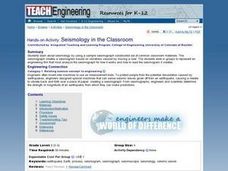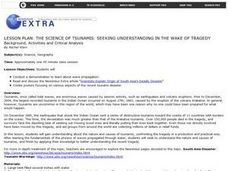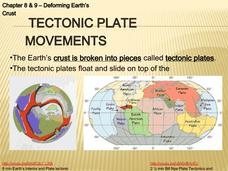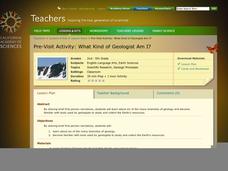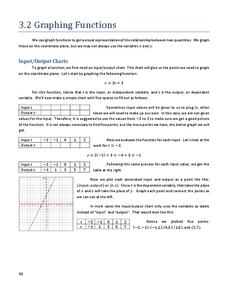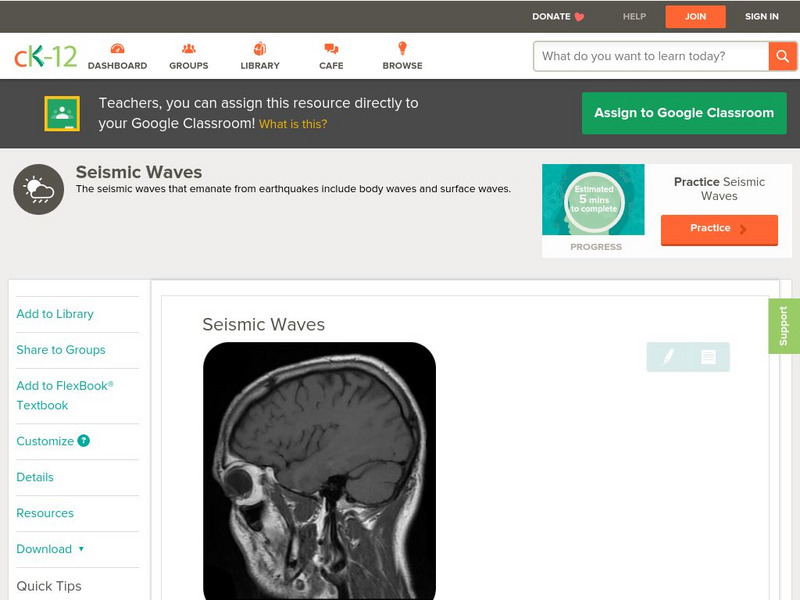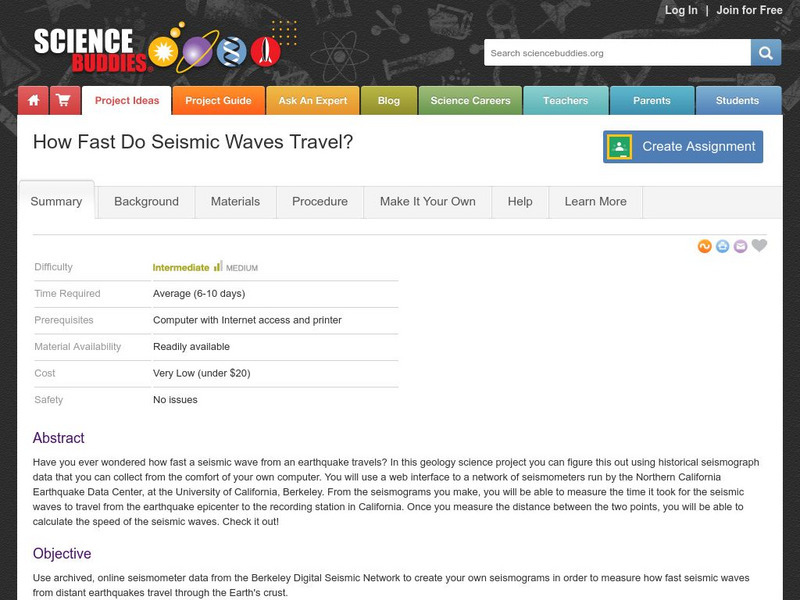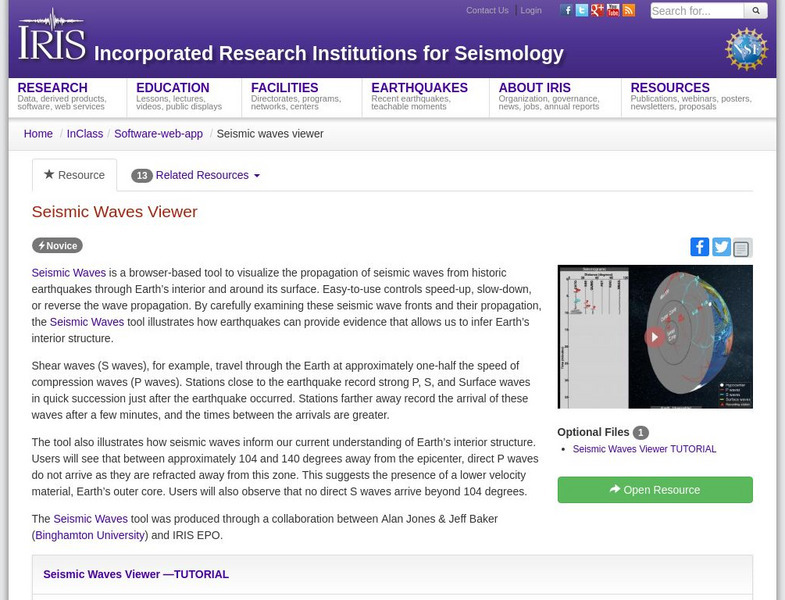Curated OER
Hazards: Fifth Grade Lesson Plans and Activities
After comparing earthquake and volcanic hazards to one another, fifth graders take a closer look at damage associated with a volcanic eruption. They then create a simulation of mudslides due to a volcanic eruption. Using different...
Curated OER
Locate-a-quake
Student, use seismic readings of the same earthquake from three recording stations and locate the epicenter of an earthquake on a map.
Curated OER
Seismology in the Classroom
Students work together to use a sample seismograph. They role play the position of an engineering firm that is to analyze the machine. They discover how engineers develop new machines to take measurements.
Curated OER
The Science of Tsunamis: Seeking Understanding in the Wake of Tragedy
Young scholars use Internet research, articles, discussion and models to explore the dynamics of a tsunami. They focus on the 2004 Asian Tsunami and create posters illustrating their understanding of this phenomenon.
Curated OER
Plate Tectonics: Fifth Grade Lesson Plans and Activities
Fifth graders continue their investigation of the plate tectonics cycle with an exploration of the movement of Earth's crust. During the lab, young geologists conduct an experiment to discover the result of different types of...
Curated OER
Volcano's Deadly Warning
Students view a video clip on volcanoes. They work together to discover the concept of sine waves. They plot points on a chart and connect them to create the complex wave. They answer questions to complete the lesson.
Curated OER
Learning from history: can it save lives?
Students research and document lessons learned from this disaster, then compile and synthesize information. They write effectively for public education purposes and use visual communications tools
Curated OER
Roots of the Hawaiian Hotspot
Students explain the processes of plate tectonics and volcanism that resulted in the formation of the Hawaiian Islands. They describe, compare, and contrast S waves and P waves. They explain how
Curated OER
Motions
Ninth graders differentiate between energy waves transmitted from a quarry or mine as opposed to energy waves transmitted by an earthquake. They analyze seismograms of blast events from at least two quarries or mines. The energy waves...
Curated OER
Deforming Earth's Crust
A short and straightforward slideshow presentation is a great addition to your lesson on plate tectonics. With demonstrative diagrams and helpful facts, the presentation helps to reinforce a concept that can be a little tricky for...
Curated OER
Plate Tectonics: Fourth Grade Lesson Plans and Activities
The pre-lab portion of the lesson introduces emerging geologists to the various layers that make up Earth. After completing a sheet on the identification of the layers, class members simulate plate boundaries and their...
Curated OER
Incorporating 3D Visualizations into Your Classroom
Students make observations through 3-D visualizations. They explore scientific and geologic processes through the use of 3-D pictures.
California Academy of Science
What Kind of Geologist Am I?
Transform your class into young geologists as they learn about six different branches of geology. Using the included geology career descriptions and picture cards, learners work in small groups deciding which tools and locations fit...
Curated OER
Graphing Functions
For this graphing functions worksheet, students write functions in logarithmic and exponential forms. They evaluate logarithms and determine the inverse of a function. Students graph functions. This six-page worksheet...
Curated OER
Circles
Tenth graders explore and define the radius and diameter of a circle. In this geometry lesson, 10th graders calculate the circumference and area of a circle using real world objects and shapes. They discuss chords and lines tangent...
Curated OER
Tomography
In this tomography activity, students read about how tomography is used to help oceanographers learn more about the Earth's surface below the ocean. Students complete 3 short answer questions based on the reading.
Curated OER
OCEAN TSUNAMI
Students research the concept of a tsunami in detail and the implications of its effect upon a seashore is considered. The causes of a tsunami are investigated and compared with each other.
Curated OER
Conducting Research
Sixth graders write research reports about trains. They focus on mechanical features of trains.
Michigan Technological University
Michigan Technological University: Up Seis: Seismology and Seismic Waves
Definitions and descriptions of a variety of seismic waves such as S, P, Love, and Rayleigh waves, as well as diagrams and speeds.
TeachEngineering
Teach Engineering: Seismic Waves: How Earthquakes Move the Earth
Students learn about the types of seismic waves produced by earthquakes and how they move the Earth. The dangers of earthquakes are presented as well as the necessity for engineers to design structures for earthquake-prone areas that are...
CK-12 Foundation
Ck 12: Earth Science: Seismic Waves
[Free Registration/Login may be required to access all resource tools.] The seismic waves that emanate from earthquakes include body waves and surface waves. Learn how scientists use seismic waves to learn about the Earth's interior.
CK-12 Foundation
Ck 12: Plix: Alaskan Earthquake: Seismic Waves
[Free Registration/Login Required] A site that diagrams what happens if a major earthquake occurs over Alaska. A short quiz over the topic is also included.
Science Buddies
Science Buddies: How Fast Do Seismic Waves Travel?
Here's a geology project that uses historical seismograph data that you can collect from the comfort of your own computer. You'll use a web interface to a network of seismometers run by the Northern California Earthquake Data Center, at...
Incorporated Research Institutions for Seismology
Iris: Seismic Waves Viewer
Visualize the propagation of seismic waves from historic earthquakes through Earth's interior and around its surface.




